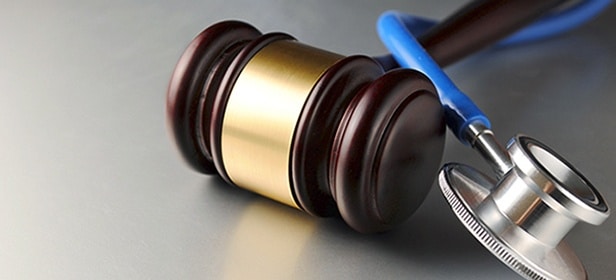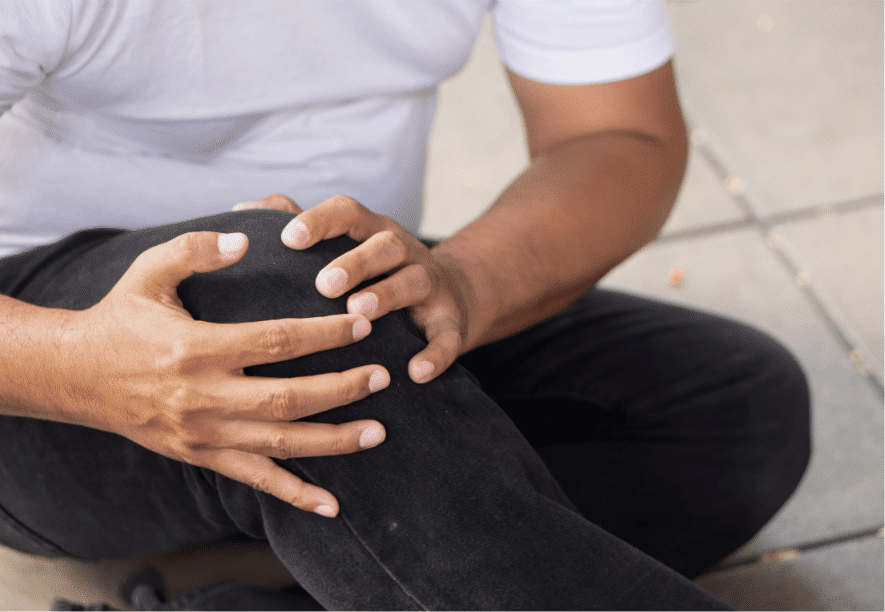Does Workers Comp Cover Car Accidents, or do I Need a Third-Party Claim?
Most people associate workers’ compensation with someone being injured by machinery or a fall while on the job.
But what about an employee injured in a car accident? With an ever-increasing amount of delivery services, thanks to online shopping and restaurant delivery, more people on the road are also on the clock. It is important to understand your legal rights if you’re injured in an auto accident while on the job.
You’re likely familiar with the concept of workers’ compensation (workers’ comp) for those injured at work, but is this the only option? In certain circumstances, you may be able to pursue other sources for full compensation.
In this post we’ll review the basics of workers’ comp claims and third-party claims after a work-related car accident. We’ll also explain how an experienced personal injury attorney can help with the entire process, allowing you to focus on healing.
I met with Harry Brown personally and he sat with me for 20 minutes at our initial consultation to explain everything. He even called after my surgery to see how I was doing. I met with him several more times after that and was kept informed about my case throughout. I highly recommend Harry Brown as an attorney.
What Is Workers’ Compensation?
Workers’ compensation is an insurance policy carried by employers. In general, if an employee has a work-related accident (slip and fall, hurt by machinery, car accident, etc.),
Unlike other personal injury claims, the process of getting workers’ compensation insurance money doesn’t require proof of an employer’s (or anyone else’s) negligence. Even if the employee is technically at fault for the incident, workers’ comp will still provide compensation.
Be aware that workers’ compensation will only pay for your economic costs, such as medical bills and lost income. You cannot recover money for non-economic costs, such as pain and suffering or mental anguish.
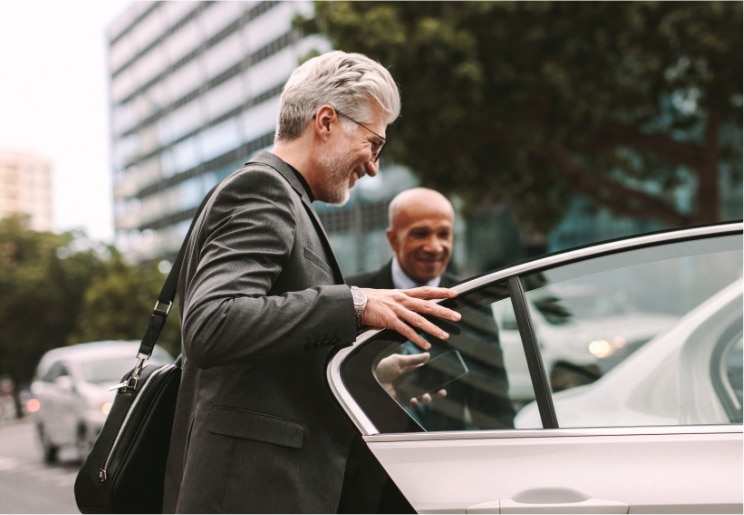

Workers’ Comp for Employees Who Drive
Under the statute in Georgia, as in most states, you only need to show the following to secure workers’ compensation after a car accident:
- You were injured in the motor vehicle accident.
- You were “on the job” and acting within the scope of your employment.
When an employee is driving a company truck, car, or other motorized vehicle, they are often acting within the scope of their employment. Typical reasons for driving on the job include:
- Making a delivery
- Running a work-related errand
- Driving another employee for work-related purposes
- Traveling to trainings or other required, work-related events
- Providing transportation for customers, such as city bus drivers
- Driving to off-site jobs
- Using the company vehicle while pursuing other job duties
For example, if you are paid to drive a delivery truck to get items to customers, and are in an accident while doing so, workers’ compensation is probably going to cover your medical bills and lost income, whether you were at fault for the accident or not.
Respondeat Superior: If the Employee Is at Fault in a Car Accident
The relationship between employers and employees who drive company vehicles and/or as part of their job falls under the legal doctrine of respondeat superior.
Respondeat superior dictates that employers are legally responsible for the actions of their employees while those employees are “acting within the scope of their employment.” This includes paying for injuries and property damage caused by an employee driving a company vehicle for work-related reasons.
Because workers’ compensation is a no-fault policy, it doesn’t matter if the employee caused the accident or not — the employer is responsible for injuries sustained by anyone hurt by the employee’s actions (including the employee themselves).
Workers’ compensation will pay for the employee’s damages, while the employer’s liability insurance will usually take care of the costs of drivers of other vehicles, non-employee passengers, bystanders, and anyone else hurt in the incident.
When an accident occurs on an employees’ own time, including travel to and from work or during a lunch break, is not usually considered work-related.
An employee who causes and/or is injured in a car accident may lose their right to any compensation or protections if they were under the influence of drugs or alcohol, or involved in criminal activity, at the time of the crash.
Can Uber and Lyft Drivers Get Workers’ Compensation Benefits?
Companies like Uber and Lyft pay drivers to provide transportation services, but on their own schedules and with the ability to pick and choose passengers through the app.
People who drive for companies like Uber and Lyft are considered independent contractors, rather than employees. This means the companies don’t have to provide workers’ compensation to injured workers when a car accident happens.
However, in 2018, Uber began offering drivers an insurance program that functions a bit like workers’ compensation. If drivers are in an accident while logged into the app, they can receive coverage for medical expenses and lost income.
A workers’ compensation attorney may be able to help rideshare contractors get financial help after a car accident on the job.
Third Party Civil Claims vs. Workers’ Compensation Claims
If you were injured due to a third party’s negligence while driving for your job, you may bring a civil claim against the driver or their insurance company. This is a completely separate option from a workers’ compensation claim.
A civil claim is brought if you sustained injuries because of the fault or negligence of the other driver. The driver responsible for your injuries is known as a “third party,” and bringing a claim against that driver is known as a “third party claim.”
As mentioned earlier, the big differences between a workers’ compensation claim and a personal injury civil claim are:
- The types of damages that can be recovered
- Whether who’s at fault must be proven
Types of Damages
In a workers’ compensation claim, you ordinarily receive payments only for your medical bills and lost wages. You will not receive payments for any physical or mental pain and suffering that you endured from your injuries. These can only be recovered in a personal injury civil claim and are known as “general damages.”
Who’s at Fault
When you bring a third-party claim against a third-party driver, you must prove the other driver caused the car accident. This can be tricky, but is much easier if you work with an experienced personal injury attorney.
Another disparity: workers’ compensation benefits do not cover property damage. This means your employer is not responsible for paying any repairs to your car—even if you were running an errand at your employer’s request. If you seek payment for vehicle damage, this can only be recovered through a civil claim.
Statute of Limitations
The two claims also vary significantly in the time periods within which you may file your claim. In a personal injury civil claim, you may have up to one, two, or even five years to file your civil lawsuit (varies by states). In a workers’ compensation claim, the standards of time are often much shorter.
Frequently, when you are injured on the job, you must notify your employer within a matter of days, or sometimes as soon as 24 hours. If you fail to meet that requirement, the employer may have a defense to your claim.
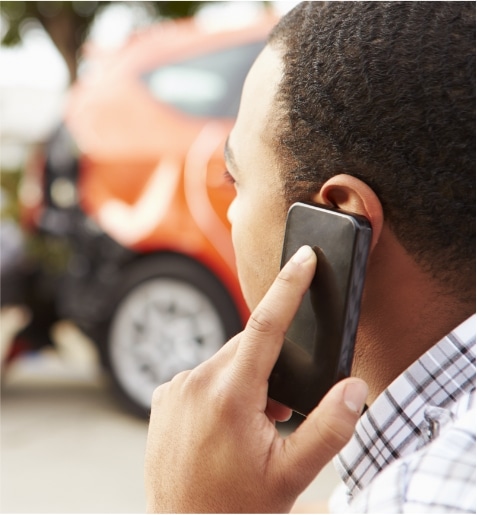

Ready to Talk to a Lawyer Who Has Your Back?
Can I Bring Both a Workers’ Compensation Claim and a Civil Suit or Personal Injury Claim?
Even though dealing with both kinds of claims can be very confusing, you don’t typically have to choose between filing a workers’ compensation claim and filing a civil claim. Even if you collect workers’ compensation benefits, you still have the right to seek damages from the other driver who caused the accident.
However, a “lien” can come into play if you receive workers’ compensation benefits from your employer. Meaning, if you reach a settlement agreement in your third-party civil claim, your employer can require reimbursement for the amount of workers’ compensation benefits they paid you. A lien is the equivalent of a right to reimbursement.
Working with a personal injury attorney can greatly increase your chances of getting as much compensation as possible from either kind of case.
RELATED: Can I Sue Outside of Workers’ Comp for a Workplace Injury?


The Brown Firm Helps With Workers’ Comp and Third-Party Civil Cases
If you need assistance filing a workers’ compensation claim or a personal injury civil suit, The Brown Firm has the experience and knowledge you need to bring a successful lawsuit. Get a free complimentary consultation with Georgia’s premier personal injury attorneys, who fully protect your rights as an injury victim.
Our Georgia and South Carolina personal injury lawyers specialize in personal injury, work-related injuries, auto accidents, wrongful death, and more. Call us at (800) 529-1441 or complete the easy contact form on our website to set up your free consultation. We can’t change your injuries, but we can help make you whole again.
The content provided here is for informational purposes only and should not be construed as legal advice on any subject.
Our Recent Personal Injury Articles
E-Bikes and Accidents: New Risks and Legal Considerations
A bus caught fire on Friday night at Ashford Dunwoody Road and I-285 West, causing delays during rush hour. The ramp was closed, and firefighters were able to put out...
Using Telematics Data to Prove Driver Behavior
A bus caught fire on Friday night at Ashford Dunwoody Road and I-285 West, causing delays during rush hour. The ramp was closed, and firefighters were able to put out...
Why Teenagers are the Most Dangerous Drivers on the Road
A bus caught fire on Friday night at Ashford Dunwoody Road and I-285 West, causing delays during rush hour. The ramp was closed, and firefighters were able to put out...
Slip and Fall Accidents in Retail Stores: Who’s Liable?
A bus caught fire on Friday night at Ashford Dunwoody Road and I-285 West, causing delays during rush hour. The ramp was closed, and firefighters were able to put out...
Bicycle Accidents: A Growing Concern for Urban Cyclists
A bus caught fire on Friday night at Ashford Dunwoody Road and I-285 West, causing delays during rush hour. The ramp was closed, and firefighters were able to put out...
Understanding Nursing Home Abuse: Signs, Symptoms, and Solutions
A bus caught fire on Friday night at Ashford Dunwoody Road and I-285 West, causing delays during rush hour. The ramp was closed, and firefighters were able to put out...
Slip and Fall Accidents in Hotels: Establishing Liability
A bus caught fire on Friday night at Ashford Dunwoody Road and I-285 West, causing delays during rush hour. The ramp was closed, and firefighters were able to put out...
Types of Nursing Home Abuse: Physical, Emotional, and Financial
A bus caught fire on Friday night at Ashford Dunwoody Road and I-285 West, causing delays during rush hour. The ramp was closed, and firefighters were able to put out...
Rabies and Other Infectious Diseases Transmitted by Dog Bites
A bus caught fire on Friday night at Ashford Dunwoody Road and I-285 West, causing delays during rush hour. The ramp was closed, and firefighters were able to put out...
Lane Splitting and Motorcycle Accidents: Legal Perspectives
A bus caught fire on Friday night at Ashford Dunwoody Road and I-285 West, causing delays during rush hour. The ramp was closed, and firefighters were able to put out...
Contact The Brown Firm
Get the Answers and Compensation You Deserve
You’ll notice the difference when you contact The Brown Firm! Our local dedicated attorneys want to help you recover and rebuild.
Schedule your free consultation by calling (800) 529-1441 or completing our simple online form.


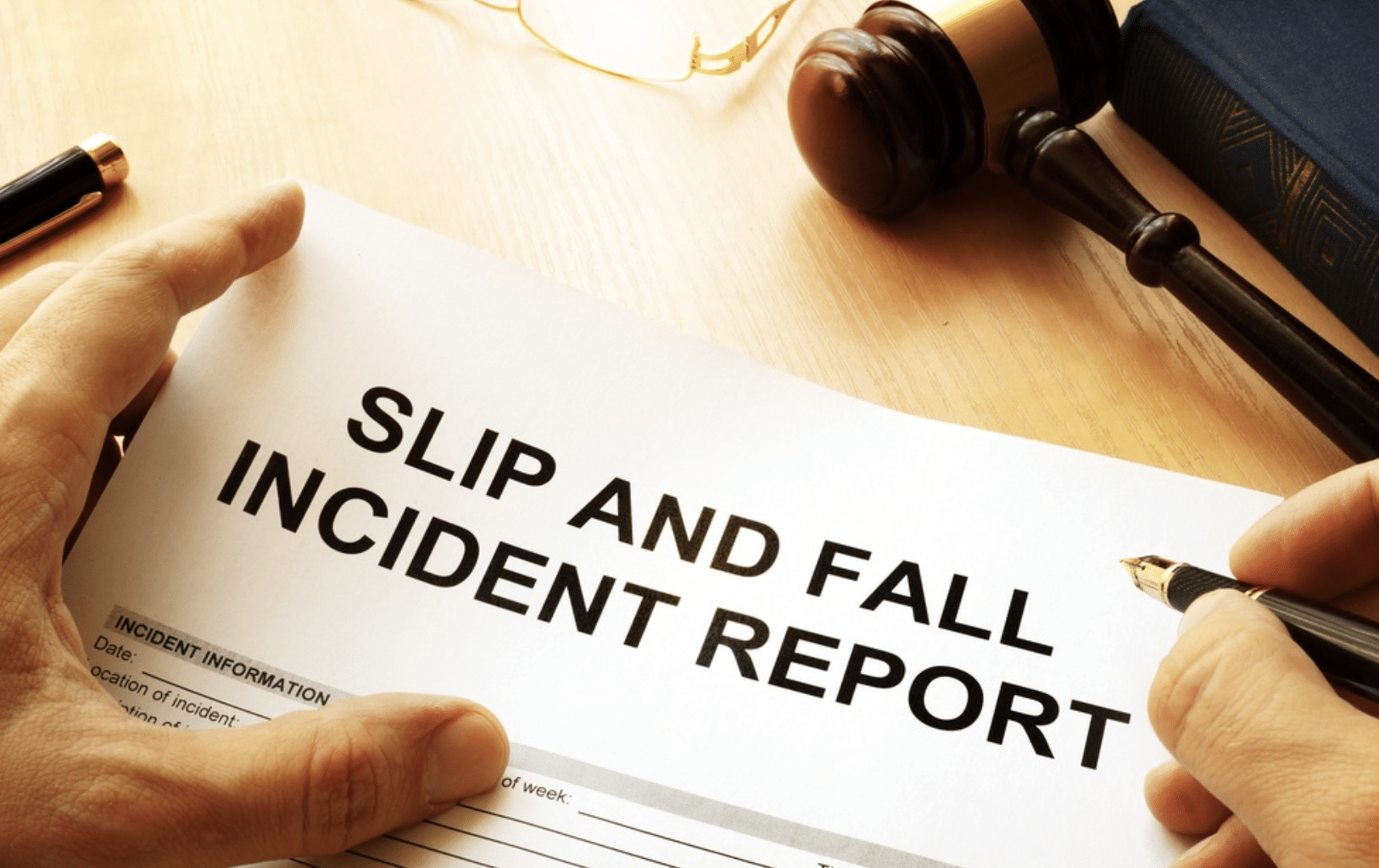

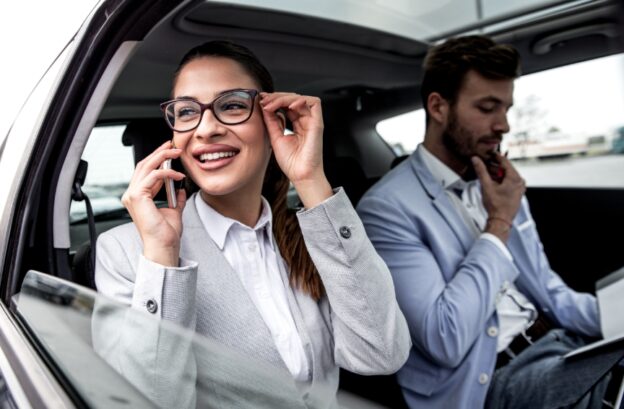
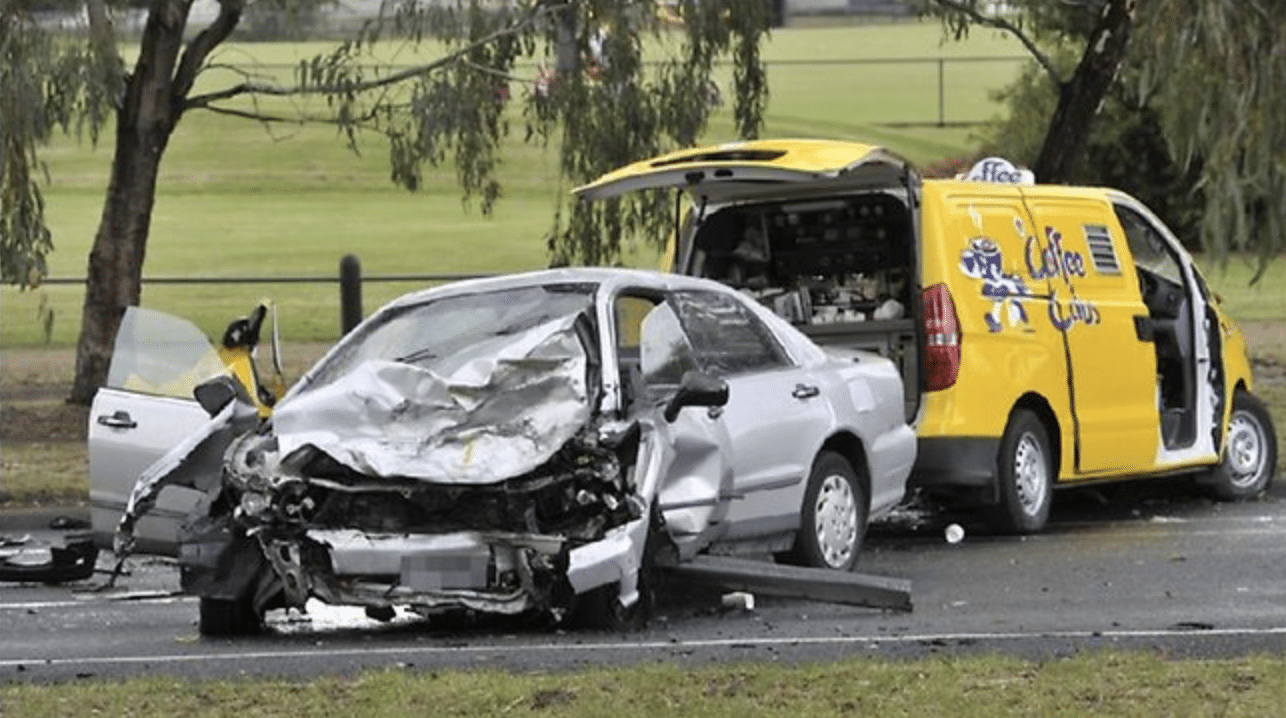


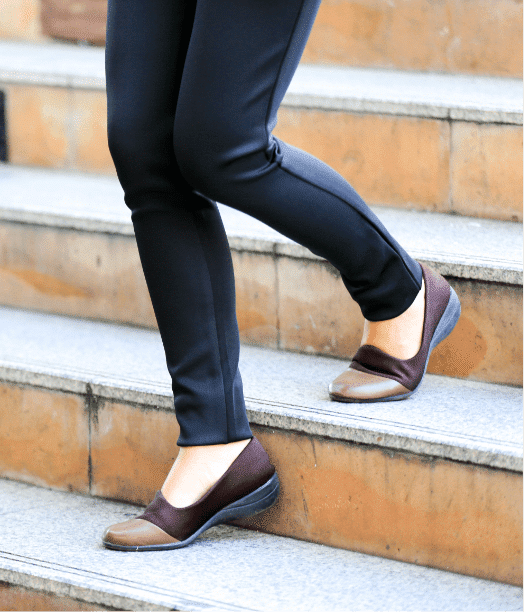


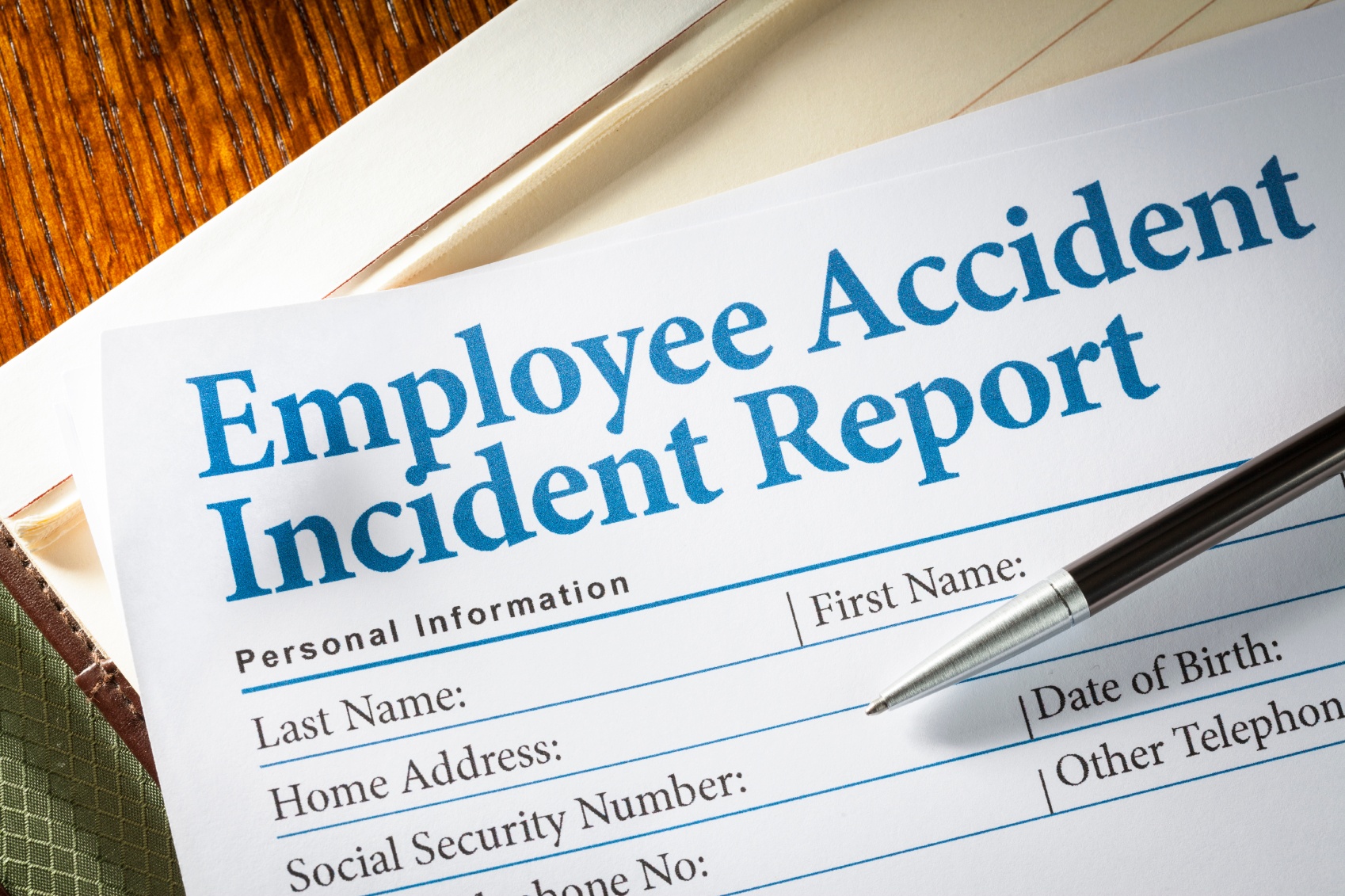 the injury occurred at work. If you fail to do this, your medical bills will be sent to you instead of the workers’ comp insurance or your employer.
the injury occurred at work. If you fail to do this, your medical bills will be sent to you instead of the workers’ comp insurance or your employer.

